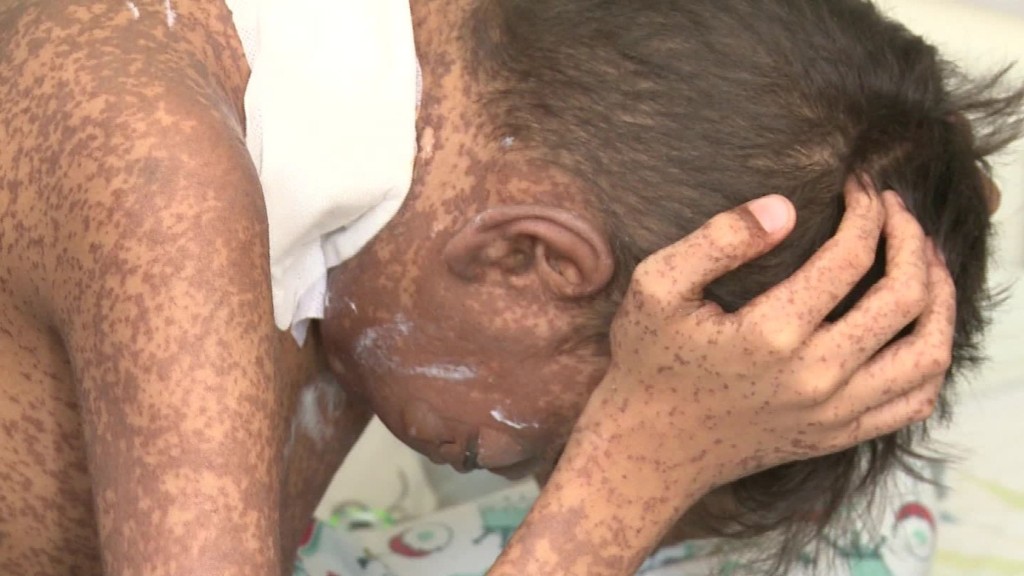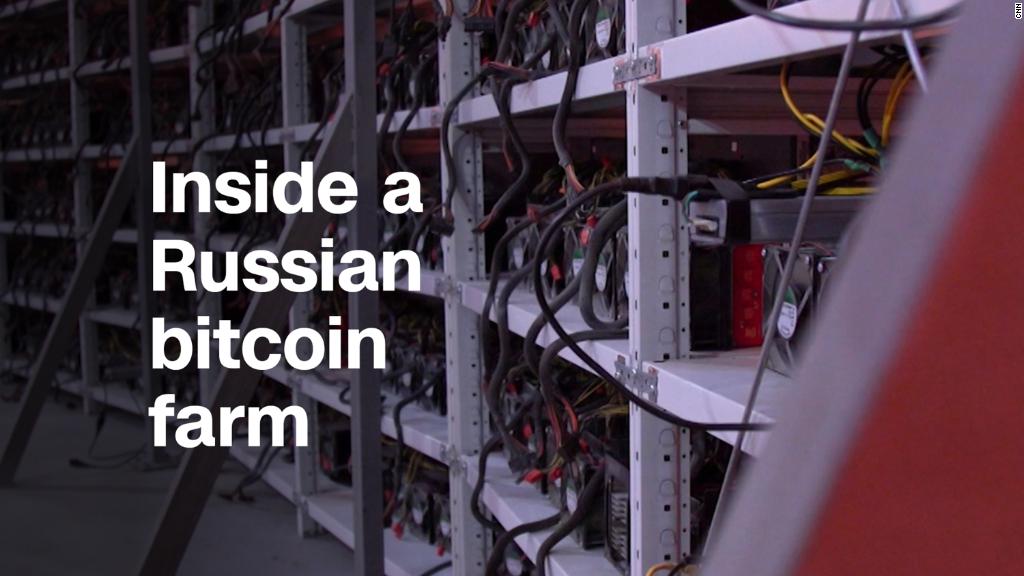
The Venezuelan government's attempts to save the country's collapsing economy took a bizarre twist on Sunday.
President Nicolas Maduro announced plans to create a cryptocurrency, dubbed "the Petro," as a way to defeat the "financial blockade" imposed by U.S. sanctions on his regime.
Cryptocurrencies are virtual "coins" that are "mined" by computers using complex algorithms. The most famous and widely used cryptocurrency is bitcoin.
Maduro said the Venezuelan cryptocurrency would be backed by the country's oil, gold, gas and diamond reserves. Venezuela is home to the world's largest crude oil reserves, but its production has steadily declined to a 13-year low after companies halted some operations because of unpaid bills.
Related: 'Death spiral': 4,000% inflation in Venezuela
Its gold, gas and diamond holdings are few smaller and they're counted by the nation's central bank in its $9.7 billion of dwindling foreign reserves, a paltry sum for any country.
Maduro blames Trump administration sanctions for making U.S. banks unwilling to participate in financial transactions with the Venezuelan government, either as buyers or payment processors.
However, the cryptocurrency is unlikely to resolve the country's deep financial problems.
The Venezuelan government and its state-run oil company, PDVSA, both defaulted on certain bonds in November, according to ratings agencies. Many experts believe the missed payments mean the country is set to default on all of its roughly $65 billion debt due to bondholders. That would likely worsen the nation's already severe food and medical shortages.
In total, Venezuela owes about $141 billion to its investors. They include China, Russia, oil service companies and a slew of other entities, according to Moody's Investor Service. Russian leaders recently agreed to delay $3.5 billion of Venezuelan debt payments, but that break is unlikely to resolve the South American nation's debt crisis.
Related: Russia extends financial lifeline to Venezuela
Maduro's announcement also comes at a time of growing interest in cryptocurrencies.
Bitcoin has enjoyed a stunning rise, soaring more than 1,000% in value this year. It started 2017 at less than $1,000, but skyrocketed past $11,000 last week. But some high-profile figures in finance and economics have warned of a potential bubble.

What's also breathtaking is the collapse of Venezuela's currency this year. It took about 3,100 bolivars to buy one U.S. dollar at the beginning of the year. Now, a dollar is worth 103,000 bolivars, according to the unofficial exchange rate tracked by dolartoday.com. One expert says inflation is on track to hit 4,000% this year.
Maduro said Sunday that the new cryptocurrency would be used to make financial transactions. But it's unclear whether bondholders would exchange payments due in U.S. dollars -- the dominant global currency -- for a new and potentially unpredictable digital currency.
Maduro, whose regime has been widely labeled a dictatorship, didn't say whether the cryptocurrency would be used by ordinary Venezuelans to buy groceries, medicines or other basics.
Related: Venezuela just defaulted, moving deeper into crisis
It isn't the first time Maduro has been creative with Venezuela's cash. His government created a new exchange rate in 2015 then later got rid of it. The country's other two official rates are considered meaningless and heavily overvalued in light of the nation's economic collapse and lack of reliable data.
With soaring inflation, Maduro promised a year ago to print bills of bolivars with higher denominations to try to alleviate Venezuelans' financial pain somewhat. But there was such high demand for them upon arrival that cash shortages persisted. Venezuelans queue up daily outside ATMs, sometimes for over an hour. The maximum that can be withdrawn from an ATM in Venezuela is 30,000 bolivars (about 30 U.S. cents).
Maduro is known to make sweeping statements that are met with applause but don't produce any tangible results. In September, he announced a plan to give rabbits to families suffering from food shortages in order to help address widespread hunger.
So far, no further news of the "rabbit plan" has emerged.


